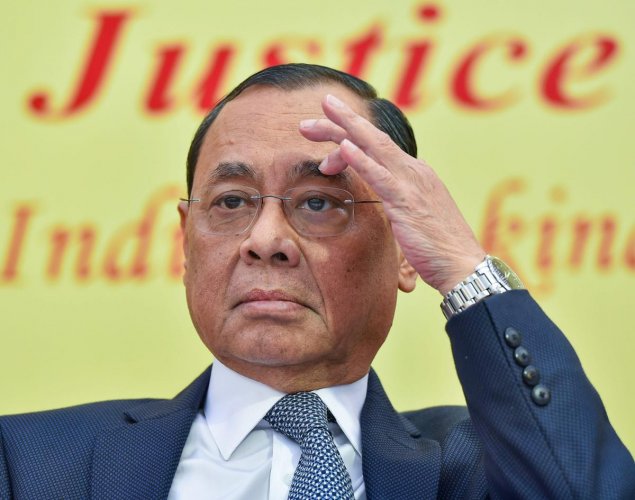NEW DELHI: Chief Justice of India (CJI) Ranjan Gogoi Monday recused himself from hearing a plea of a lawyers’ body which has sought abolition of designation of advocates as seniors, on the ground that it leads to an “elite class” consisting of kith and kin.
A bench headed by Justice Gogoi on October 12, 2017 had delivered a judgement laying down guidelines for the Supreme Court and 24 High Courts to govern the exercise of designating lawyers as seniors, and had ordered setting up of a committee headed by the CJI, which would be assisted by a secretariat.
The lawyers’ body has sought re-consideration of the 2017 verdict saying that vesting the ultimate power in the matter of designation of lawyers as seniors with the full court of the apex court or the full courts of the high courts were detrimental to the independence of the Bar.
“I do not want to be part of the bench,” the CJI said moments after lawyer Mathews J Nedumpara started advancing arguments in the case.
The National Lawyers’ Campaign for Judicial Transparency and Reform said however that for the time being, lawyers who have crossed the age of 62 and have been actively practising at the Bar for more than 35 years, be designated as senior advocates.
The plea claimed that the system of designation of lawyers as “senior” led to their classification into two classes — “elite class” which consisted of the kith and kin and juniors of sitting and former Judges of the apex court and the high courts, and those who are politically connected and the “first generation” lawyers.
The plea said that till the system of designation of senior lawyers is abolished, only those advocates who have crossed the age of 62 years and have been in practice for 35 years be designated as “senior”.
The 2017 verdict had ordered setting up of a committee headed by the CJI, which would be assisted by a secretariat.
Disposing four petitions including one filed by senior advocate Indira Jaising, the bench had, in its 112-page judgement, laid down as many as 11 guidelines to effectively deal with the process of designating lawyers as seniors.
The pleas on designating a lawyer as senior would be sent to the secretariat which would compile relevant data and information with regard to “the reputation, conduct, integrity of the Advocate(s) concerned including his/her participation in pro-bono work; reported judgements in which the concerned Advocate(s) had appeared; the number of such judgements for the last five years, the top court had said in its judgement.
The apex court said that 100 points would be awarded under different heads to the lawyers seeking consideration for being designated as seniors.
Maximum of 20 points would be earmarked for the years spent in the legal profession, it said, adding that 40 points would be given for aspects such as judgements to which the lawyer has been a part, pro-bono litigations, domain of expertise in branches of law.
Publications by the Applicant Advocate would be earmarked 15 points, while the test of personality and suitability on the basis of interview or interaction would have 25 points. (AGENCIES)


